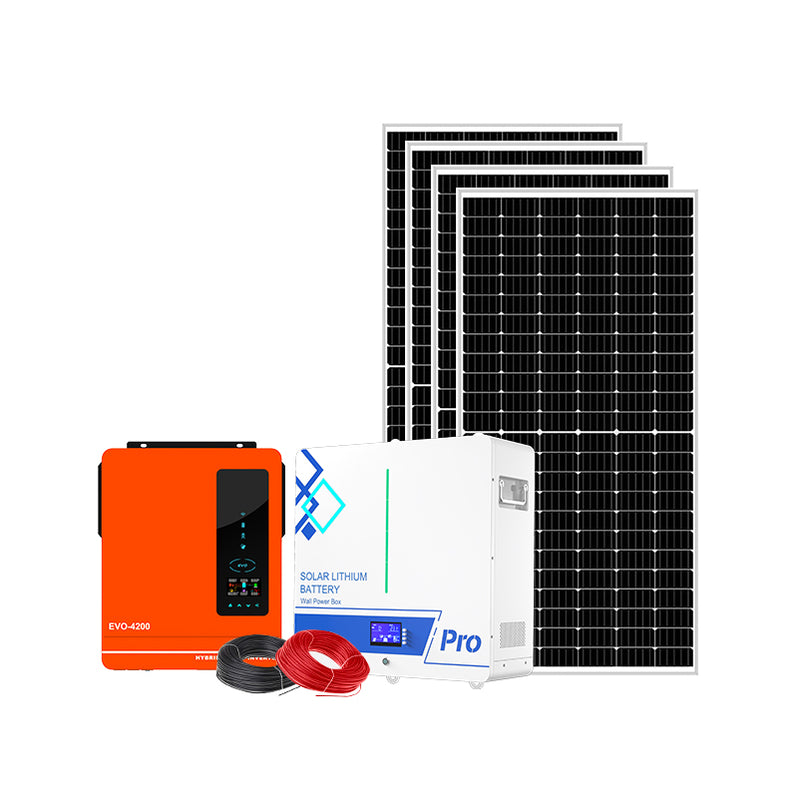Unlock the Secrets to Off-Grid Living: Discover the Ultimate Guide to Self-Sufficient Homes!
In recent years, the concept of off-grid living has gained significant traction among those seeking a more sustainable and self-sufficient lifestyle. With an increasing awareness of environmental issues and the desire for independence from traditional utility companies, residential off-grid systems have emerged as a viable solution. These systems allow homeowners to generate and manage their own energy, reducing reliance on fossil fuels and minimizing their carbon footprint. Whether you're dreaming of a cabin in the woods or simply want to cut your utility bills, understanding how these systems work is crucial for achieving your goals of sustainability and energy independence.

Understanding Residential Off-Grid Systems
Residential off-grid systems are setups that allow a home to operate independently of the traditional electricity grid. These systems typically harness renewable energy sources, such as solar or wind, to generate power on-site and store it for later use. Off-grid living contrasts with on-grid living, where homes are connected to the utility grid and rely on it for their energy needs. The primary function of an off-grid system is to produce enough energy to meet the household's consumption, which often involves a combination of energy generation, storage, and management. By embracing this lifestyle, homeowners can enjoy the freedom that comes with self-reliance while contributing to a more sustainable future.
Benefits of Off-Grid Living
Living off the grid offers a myriad of benefits that can significantly enhance your quality of life. One of the most appealing advantages is energy independence. By generating your own power, you become less vulnerable to fluctuations in utility prices and power outages. Additionally, off-grid systems can lead to considerable cost savings over time, as the initial investment in solar panels or wind turbines often pays for itself through reduced energy bills. From an environmental perspective, off-grid living minimizes your carbon footprint, allowing you to reduce reliance on non-renewable energy sources. Furthermore, it fosters a sense of self-sufficiency, empowering individuals and families to take control of their energy production and consumption.
Key Components of Off-Grid Systems
To successfully implement a residential off-grid system, several key components are necessary. Solar panels are the most common energy source, converting sunlight into electricity. Batteries are essential for storing excess energy generated during sunny days for use during the night or cloudy days. Inverters play a critical role by converting the direct current (DC) produced by solar panels into alternating current (AC), which is used by most household appliances. Backup generators can provide additional power during prolonged periods of low energy production. Understanding these components is vital for anyone looking to transition to an off-grid lifestyle.
Solar Power Systems
Solar power systems are at the heart of most residential off-grid setups. They consist of solar panels that capture sunlight and convert it into electricity. There are various types of solar panels, including monocrystalline, polycrystalline, and thin-film, each with its own advantages and installation considerations. Homeowners should assess their energy needs and available space to determine the most suitable type and size of the solar system. Proper installation and maintenance are crucial to ensure optimal performance and longevity.
Energy Storage Solutions
Energy storage is a critical aspect of off-grid systems, as it allows homeowners to use energy generated during the day at night or during periods of low production. Lithium-ion and lead-acid batteries are common storage options, each with its own benefits and drawbacks. Lithium-ion batteries, while typically more expensive, offer higher efficiency and a longer lifespan. Understanding the differences and selecting the right battery type is essential for maximizing the efficiency of your off-grid system.
Setting Up Your Off-Grid System
Setting up a residential off-grid system involves several key steps. First, conduct a site assessment to evaluate factors such as solar exposure, wind patterns, and local regulations. Next, design a system that meets your energy needs while considering future expansion. This phase might involve calculating your daily energy consumption and determining the appropriate size of your solar array and battery bank. Once the design is complete, you can proceed with installation, ensuring that all components are correctly connected and configured. Finally, regular maintenance and monitoring of the system will help ensure its longevity and efficiency, allowing you to enjoy the benefits of off-grid living for years to come.
Exploring the Path to Energy Independence
In summary, residential off-grid systems present an inspiring path towards a sustainable and self-sufficient lifestyle. By understanding the components and benefits of these systems, individuals can take proactive steps toward energy independence. The transition to off-grid living requires careful planning and knowledge, but the rewards—financial savings, environmental benefits, and a greater sense of autonomy—are well worth the effort. Whether you're motivated by personal values or practical considerations, consider the potential of off-grid living as a way to enhance your quality of life and contribute positively to the planet.



